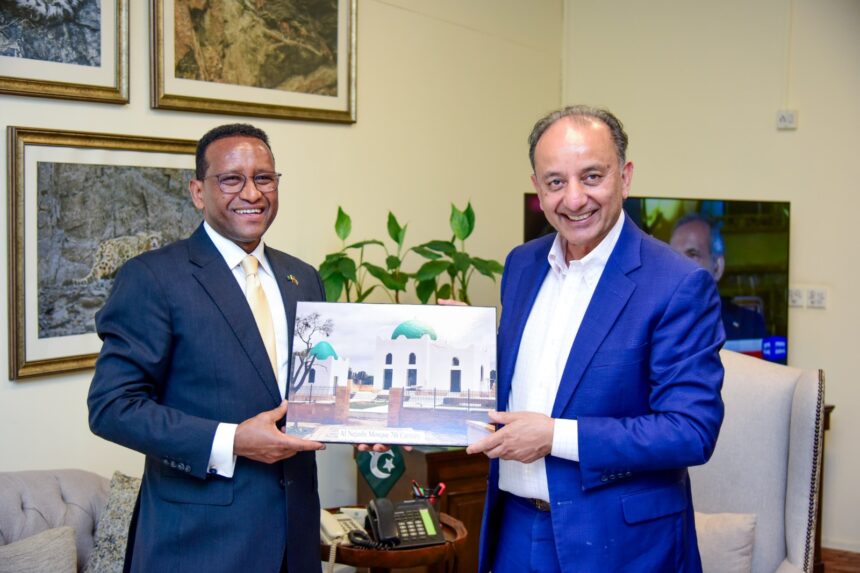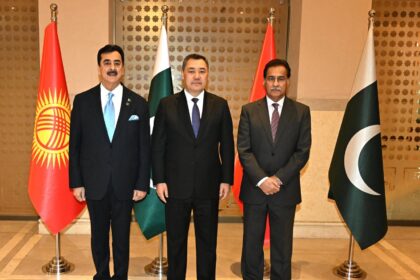**Pakistan and Ethiopia Explore Collaboration on Green Initiatives and Climate Action**
Pakistan and Ethiopia are seeking to strengthen cooperation on environmental conservation and climate-smart initiatives, following high-level talks between Federal Minister for Climate Change and Environmental Coordination, Dr. Musadik Malik, and Ethiopian Ambassador Jemal Beker Abdulla. The discussions focused on knowledge exchange, large-scale afforestation, and fostering community-driven approaches to mitigate the impact of climate change.
In the meeting, Ambassador Jemal Beker Abdulla provided an overview of Ethiopia’s flagship Green Legacy Initiative, launched in 2019. The program aims to promote harmony with nature, empower women through sustainable practices, and create a safer, more progressive environment. He also highlighted the urgent need for coordinated global climate action, stressing that countries such as Pakistan face severe consequences from climate change despite their minimal contribution to the crisis. The Ambassador called for timely international action to support adaptation and sustainability efforts.
Both parties explored opportunities for partnership between Ethiopia’s Green Legacy Initiative and Pakistan’s Green Pakistan Programme. Top priorities include joint efforts on afforestation, sharing technical expertise, and supporting community-driven conservation.
Dr. Musadik Malik underscored the critical role of young people in advancing the climate agenda. He outlined recent steps by the Ministry to foster youth-led environmental innovation, including enabling five Pakistani green startups to participate in the SDG Fair in Seville, Spain. This initiative aims to connect young entrepreneurs with global investors and help scale their solutions for environmental sustainability.
The Minister praised Ethiopia’s achievements in implementing nationwide green policies, describing its progress as an inspiration and a model for Pakistan to follow.
Addressing the growing food security challenges faced by Pakistan amid rapid population growth, Dr. Musadik Malik emphasized the need for integrated solutions encompassing sustainable resource management, efficient water use, and climate-smart agricultural practices to build long-term resilience.
Both countries reiterated their commitment to deepening bilateral cooperation on environment and climate, promoting sustainable development, and working together to build a greener, more resilient future for their people and the world.











